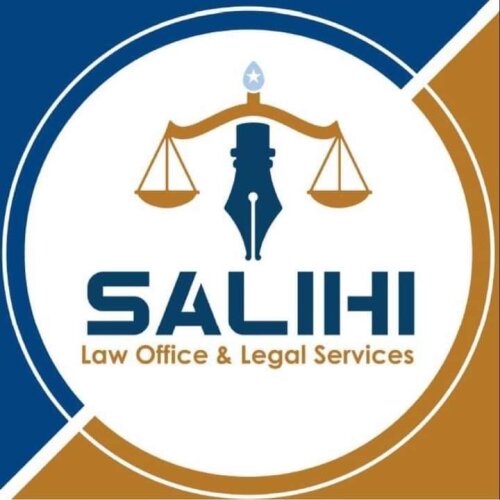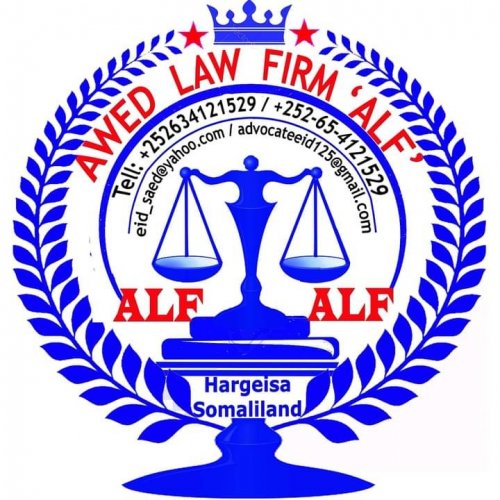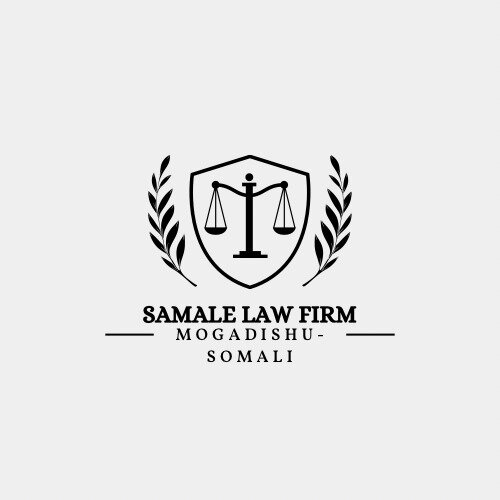Best Lawyers in Somalia
Share your needs with us, get contacted by law firms.
Free. Takes 2 min.
Or refine your search by selecting a city:
List of the best lawyers in Somalia
About Hiring a Lawyer in Somalia
Finding a reliable lawyer in Somalia requires understanding the legal landscape and identifying competent professionals who can address your legal concerns. Most lawyers in Somalia are licensed to practice under the Somali Bar Association, and it's recommended to verify their credentials through this body. Begin by identifying the area of law relevant to your needs-such as civil, criminal, or commercial law-and seek recommendations or contact law firms directly for consultations. It's essential to discuss their fees upfront and to ensure they have experience in handling matters similar to yours.
Why You May Need a Lawyer
Individuals in Somalia may require legal assistance in various situations. Commonly, people seek lawyers for matters such as resolving disputes, defending against criminal charges, drafting contracts, dealing with family law issues like divorce or custody, and navigating land or property transactions. Additionally, businesses often require legal expertise for compliance matters, regulatory guidance, and resolving commercial disputes. Seeking proper legal advice can significantly affect the outcome of these scenarios.
Local Laws Overview
Somalia's legal system is a mix of civil law, Islamic law, and customary law. This hybrid structure poses unique challenges and opportunities for legal practitioners. Key areas of law, such as criminal justice, matrimonial law, and property law, are heavily influenced by Sharia. Legal advisors must navigate this complex system while respecting local customs and traditions. It's crucial for individuals and businesses to be aware of how these laws may impact their rights and responsibilities.
Frequently Asked Questions
1. How can I find a qualified lawyer in Somalia?
You can contact the Somali Bar Association for a list of certified lawyers or seek recommendations from trusted sources who have used legal services in Somalia.
2. What should I expect during a consultation?
During an initial consultation, you'll discuss your legal issue, the lawyer's experience with similar cases, and anticipated costs. This is your opportunity to evaluate whether the lawyer is a suitable fit for your needs.
3. How are legal fees generally structured in Somalia?
Legal fees may vary depending on the complexity of the case and the lawyer’s experience. It's important to discuss and agree on the fee structure in advance, which might be on an hourly basis, a flat fee, or a contingency fee for certain cases.
4. Can I get legal representation in my local language?
Many lawyers in Somalia speak local languages as well as English, ensuring you can communicate your needs effectively.
5. What are my rights if arrested in Somalia?
If arrested, you have the right to legal representation, to be informed of the charges against you, and to a fair trial. Engaging a competent lawyer is critical to ensuring these rights are upheld.
6. How do I check a lawyer's credentials?
You can verify a lawyer’s credentials through the Somali Bar Association, which maintains records of licensed practitioners.
7. What type of legal system does Somalia have?
Somalia follows a hybrid legal system that integrates civil law, Sharia law, and customary laws. Understanding how these laws interact is crucial for effectively handling legal issues.
8. Is mediation a recommended option before going to court?
Mediation is often encouraged as a cost-effective and amicable resolution method, especially in civil disputes, before resorting to formal court proceedings.
9. What should I do if I cannot afford a lawyer?
Consider reaching out to NGOs or legal aid organizations that might provide free or affordable legal assistance to those unable to afford private legal fees.
10. What happens if I lose my case?
If you lose your case, your lawyer can discuss the potential for appeal or any alternative legal strategies that might still be available.
Additional Resources
If you're seeking further guidance, consider reaching out to the following:
- The Somali Bar Association for lawyer verification and resources.
- Legal aid organizations such as the Somali Legal Aid Network.
- NGOs like the United Nations Development Programme (UNDP) that may provide resources and support for legal matters.
Next Steps
To proceed with obtaining legal assistance in Somalia, start by identifying the specific legal issue you are facing and reach out to the Somali Bar Association for potential legal referrals. Gather all relevant documentation and background information regarding your case. Schedule consultations with several lawyers to find the best match for your needs, and make sure to clarify engagement terms, including fees and communication expectations. Remember, timely and informed legal counsel can significantly improve your chances of a favorable outcome.
Lawzana helps you find the best lawyers and law firms in Somalia through a curated and pre-screened list of qualified legal professionals. Our platform offers rankings and detailed profiles of attorneys and law firms, allowing you to compare based on practice areas, experience, and client feedback.
Each profile includes a description of the firm's areas of practice, client reviews, team members and partners, year of establishment, spoken languages, office locations, contact information, social media presence, and any published articles or resources. Most firms on our platform speak English and are experienced in both local and international legal matters.
Get a quote from top-rated law firms in Somalia — quickly, securely, and without unnecessary hassle.
Disclaimer:
The information provided on this page is for general informational purposes only and does not constitute legal advice. While we strive to ensure the accuracy and relevance of the content, legal information may change over time, and interpretations of the law can vary. You should always consult with a qualified legal professional for advice specific to your situation.
We disclaim all liability for actions taken or not taken based on the content of this page. If you believe any information is incorrect or outdated, please contact us, and we will review and update it where appropriate.
Refine your search by selecting a practice area.
Accidents & Injuries
Banking & Finance
Bankruptcy & Debt
Business
Civil & Human Rights
Consumer Rights
Corporate & Commercial
Criminal Defense
Employment & Labor
Energy, Environment & ESG
Family
Immigration
Insurance
Intellectual Property
Lawsuits & Disputes
Media, Technology and Telecoms
Notary Services
Private Client
Real Estate
Browse law firms by city in Somalia
Refine your search by selecting a city.































